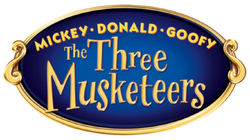Hungarian Rhapsody No. 2
Attractions and stage performances
Source
"Hungarian Rhapsody No. 2" is a musical piece composed by Franz Liszt in
1847 and notable for its performances in many
Disney productions.
Appearances in Disney media [ ] The piece was played on a piano by Mickey Mouse in the 1929 short The Opry House Farmyard Symphony ". The piece was also heard in the climax of the 1953 True-Life Adventure featurette Water Birds Paul Smith . It was also featured in the 1969 short film It's Tough to Be a Bird Disney Channel show DTV Bone Trouble
In the 1988 film Who Framed Roger Rabbit Donald Duck and Daffy Duck as part of a "dueling pianos" stage act at The Ink and Paint Club . It is one of several musical pieces used in a trailer for Mickey, Donald, Goofy: The Three Musketeers Remember... Dreams Come True fireworks show at Disneyland and also played briefly in the Europe section of the short-lived Disney's ImagiNations Parade at Disneyland Paris . It is one of several musical pieces featured in the 2014 video game Fantasia: Music Evolved
In Roger Rabbit's Car Toon Spin Mickey's Toontown /Toontown in Disneyland /Tokyo Disneyland ), on a queue, Donald played a song on a piano as a reference the movie; and as a recurring theme throughout various scenes of the ride.
Trivia [ ] Hungarian Rhapsody No. 2 was also used by other cartoon companies, such as Warner Brothers Rhapsody Rabbit Bugs Bunny plays "Hungarian Rhapsody No. 2 " only to be upstaged by a mouse! (By coincidence Hanna Barbara cartoon Tom and Jerry also produced at the same time The Cat Concerto in which Tom cat plays "Hungarian Rhapsody No. 2 " only to be upstaged by a Jerry Mouse! The Cat Concerto was awarded the 1946 Oscar for Best Short Subject: Cartoons and also earned the duo their fourth consecutive Academy Award for Best Animated Short Film). Video [ ]
Hungarian Rhapsody (Dueling Pianos)
See also [ ]




